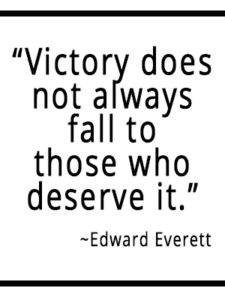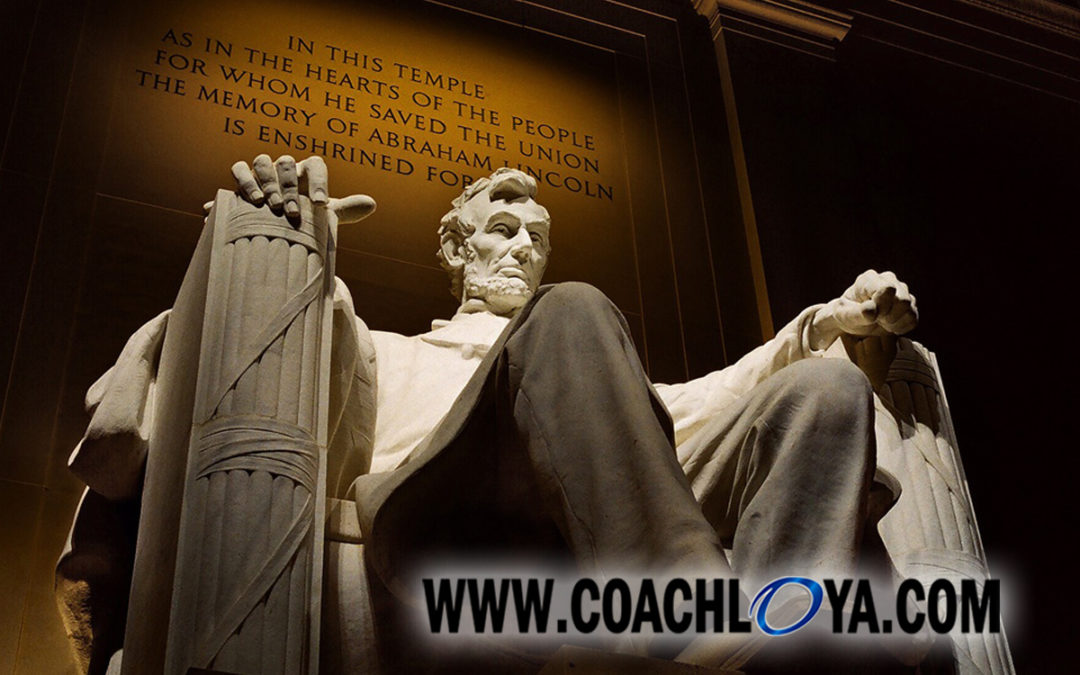Seven score and eighteen years ago this week, Abraham Lincoln delivered one of the most iconic speeches in American history. If your nineteenth century math is a little rusty, that’s one hundred and fifty-eight years ago. And if your history is a little rusty, the iconic speech was the Gettysburg Address.
On the afternoon of November 19, 1863, a crowd gathered for the dedication of the Gettysburg National Cemetery. The ceremony was held on the battlefield where Union forces had defeated the Confederates some four and a half months prior.
Most don’t realize that Lincoln’s speech, though now commonly known as the “Gettysburg Address,” wasn’t the real Gettysburg Address.
The keynote address that day was actually given by a dignitary named Edward Everett, who was widely recognized as the period’s most popular and respected orator. Everett spoke for over two hours—customary practice and the expected length in that era for that type of speech.
Lincoln was asked to make a few remarks after Everett had finished. Lincoln’s brief, two-minute remarks became what is most remembered about the occasion.
Everett later wrote to Lincoln, humbly stating that the President had accomplished in two minutes what he had tried to do in two hours. As Lincoln’s words went that generation’s equivalent of viral, Everett recognized that their impact exceeded that of his much longer speech—and he wasn’t too proud to acknowledge that fact.
The appropriateness of Everett’s response highlights two important aspects of being a good teammate: humility and brevity.
Good teammates are never jealous of their fellow teammates’ success. If another team member outperforms them, they possess the humility to acknowledge and appreciate the better performance. They refuse to be jealous or resentful.
Their response is an indication of their love for their team and a sign of class.
Brevity conveys respect. Good teammates respect others’ time. They don’t speak any longer than necessary, nor do they speak any shorter than necessary. They communicate precisely, efficiently, and effectively.
Sharing their thoughts in this manner keeps them from rambling on, babbling, or talking in circles—all of which unnecessarily rob the listener of valued time.
Humility and brevity are borne of self-awareness. To be a good teammate, you need to be aware of how your words and actions affect others.
 While Lincoln’s words continue to echo through history, a few from Everett’s address are also deserving of that honor.
While Lincoln’s words continue to echo through history, a few from Everett’s address are also deserving of that honor.
Everett provided a chronological account of the Gettysburg battle in his speech. When describing the Union’s victory, despite the Confederates having “superiority of numbers” and the advantage of choosing the battle’s time and place, Everett said: “Victory does not always fall to those who deserve it.”
His words are as true today as they were seven score and eighteen years ago. Teams comprised of good teammates have a knack for being victorious, even when they seem to be at a disadvantage.
As always…Good teammates care. Good teammates share. Good teammates listen. Go be a good teammate.





